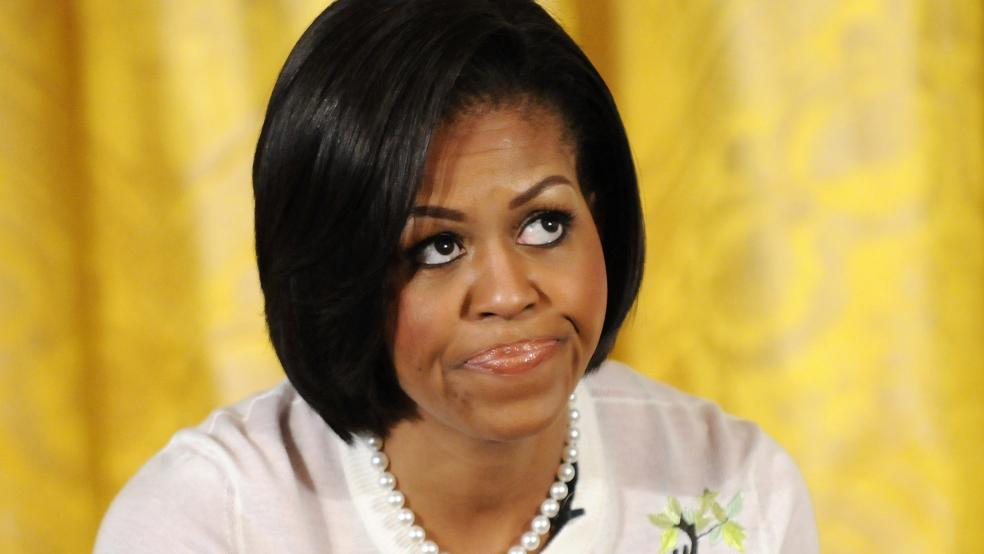Despite billions of dollars in related funding, the national campaign against childhood obesity initiated in 2010 by Michelle Obama, perhaps the fittest first lady in history, has apparently moved the needle on America’s weight scale only slightly.
We’re fat, we’re getting fatter and so are our kids, except for the very youngest, according to new studies of obesity in America from the Centers for Disease Control that were just published in the Journal of the American Medical Association.
Related: The 10 Fattest States in America
An editorial in JAMA says that government, nonprofits and business have spent hundreds of millions of dollars trying to “stem the tide of the obesity epidemic” but concludes that “the data certainly do not suggest much success.”
The national surveys cited by the CDC found that in 2013-2014 more than 40 percent of American women and 35 percent of American men were obese. That’s up from 38 percent of women and 34 percent of men a decade earlier.
Among children and teens ages 2 to 19, the overall obesity rate from 2011-2014 was 17 percent, with extreme obesity at 5.8 percent. But among teens, obesity is on the rise, growing from 17 percent to 21 percent.
The sliver of hope for reversing the bulking up of the country is younger children. Among kids age 2 to 5, the prevalence of obesity declined from 13.9 percent in 2003-2004 to 9.3 percent in 2013-2014.
Michelle Obama kicked off a program called Let’s Move! in 2010 with much fanfare. Government agencies were enlisted in the effort, Beyoncé made a music video and companies such as Disney signed on to help. The stated goal was to “solve the challenge of childhood obesity within a generation.” At the same time, President Obama appointed a Task Force on Childhood Obesity and signed the Healthy, Hunger-Free Kids Act, which allocated $4.5 billion to implement new nutrition standards in schools.
Related: Obesity Is Now a Bigger Global Problem Than Hunger
But if Michelle Obama’s efforts to make America not so enormous again haven’t made much of a difference, there is scant evidence that the pet projects of other recent first ladies registered much success either.
Decades after Nancy Reagan’s “Just Say No” to drugs campaign, marijuana is inching toward legalization and the country is beset by an epidemic of heroin and opioid abuse. And Hillary Clinton’s efforts to craft universal health care in Bill Clinton’s first term, dubbed “Hillarycare,” went down to defeat. In her book Living History, Clinton wrote that “I underestimated the resistance I would meet as a first lady with a political mission.”





